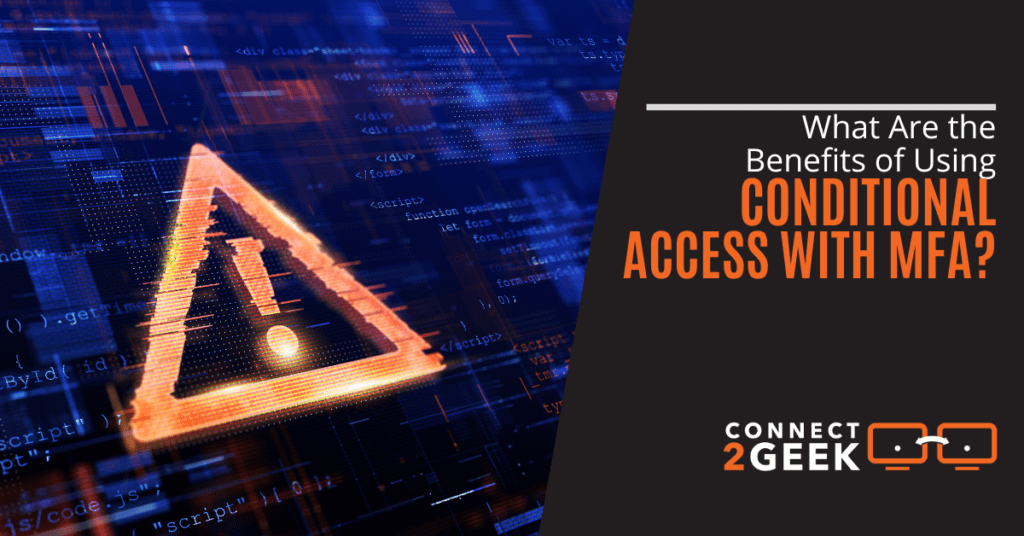
Controlling access to crucial information is becoming increasingly difficult in recent times, where data is getting a lot more essential. Errors in the control of access to information endangers a business’s cyber security and the entire organization. To control this increasing risk, many companies support the practice of bringing self-owned devices in place of distributing the ones managed from a centralized source, posing further threats to network security.
The use of traditional passwords for security is becoming insufficient for optimum protection against the growing number of unauthorized entry as well as the ever-changing hacking methods that plague today’s digital environment. According to research, 81% of cyber-attacks result from stolen or weak passwords.
Conditional Access helps to secure essential business data by enforcing strict network access limitations. This solution allows users to authorize specific compliance, self-serve, and put in place certain access authorizations to enhance protected information. It’s important to deploy the right Conditional Access with comprehensive set of managed ecurity solutions to ensure your business data are always safe.
When effective security practices are not adopted, it becomes more difficult to protect against attackers who devise sophisticated attacks on network infrastructures. Conditional Access should be your step toward Zero Trust. This is a network strategy helping to reduce potential attacks on your organization. It is accomplished by blocking unauthorized entities including applications and devices.
What Is The Significance of Conditional Access?
Conditional Access makes it possible for you to create conditions that manage security controls, such as blocking access, requiring 2-factor authentication, and restricting user’s sessions when necessary.
It adds another layer of security to any network by making it possible for a system administrator to check remote connections through some conditions. Such criteria are more than the traditional ID-based form of authentication used to regulate the location of an individual, the program in use, among other factors.
Access may be denied if these conditions are not met, or more login credentials may be required. A phone verification, additional security password, or other related multi-factor approaches can be used.
What Are The Benefits of Conditional Access?
Conditional Access can be considered as the best path for the organizations that need to use security signals and make decisions to enforce policies. When an organization’s security requirements are complex, Conditional Access may be a great idea to take into consideration. Conditional Access has several additional features and benefits, which are:
- Conditional Access enhances your system’s security by integrating factors other than a password and username that hackers cannot easily forge, such as your login location or the device identity.
- It allows you to protect data on your device, lowering the possibility of vital information falling into undesirable hands. With this policy, it’s possible to automate the process of monitoring for irregularities and respond when some risk factors are met. An example of this is blocking cloud account access if found to be originating outside a valid geographic area.
- Conditional Access guarantees users can only carry out some actions if certain criteria are met. For instance, you could restrict access to sensitive data to representatives who have been with the company for some years. Another example is setting a limit for who can effectively download an app.
- With Conditional Access, an organization can generate protection rules executed at the point of authentication to control access.
- Conditional Access controls can be used to aid protection against the possibility of credentials being stolen or phished by requiring two-factor authentication. They can also help protect corporate data by requiring an Intune-managed device to access sensitive services.
- Risk reduction is achieved by observing unusual patterns of activities and giving notifications when such occur.
- Conditional Access lowers costs by reducing reliance on third-party customer security solutions.
- It improves compliance level by auditing application access and putting in place terms of use for user approval when an entry is made.
- Conditional Access helps administrators to make the right decisions as well as to enforce effective organizational policies.
- Conditional Access improves productivity by having users sign in using MFA only when specific signals require it.
- Conditional Access adds extra safety buffers to the workplace that are difficult to avoid. This makes it extremely difficult to hack computers and cloud accounts and gain data access. It ensures that only a specific code or an authorized device can access data and apps.
Implement Conditional Access with MFA Today!
Conditional Access processes and policies help to determine the conditions for accessing Microsoft apps and services within an organization.
You can implement Conditional Access with MFA today at CONNECT2GEEK. We are centralized IT solution experts that provide a single-pane view of all Office 365 settings.
We work diligently to ensure that your IT systems run smoothly. Contact us today!
